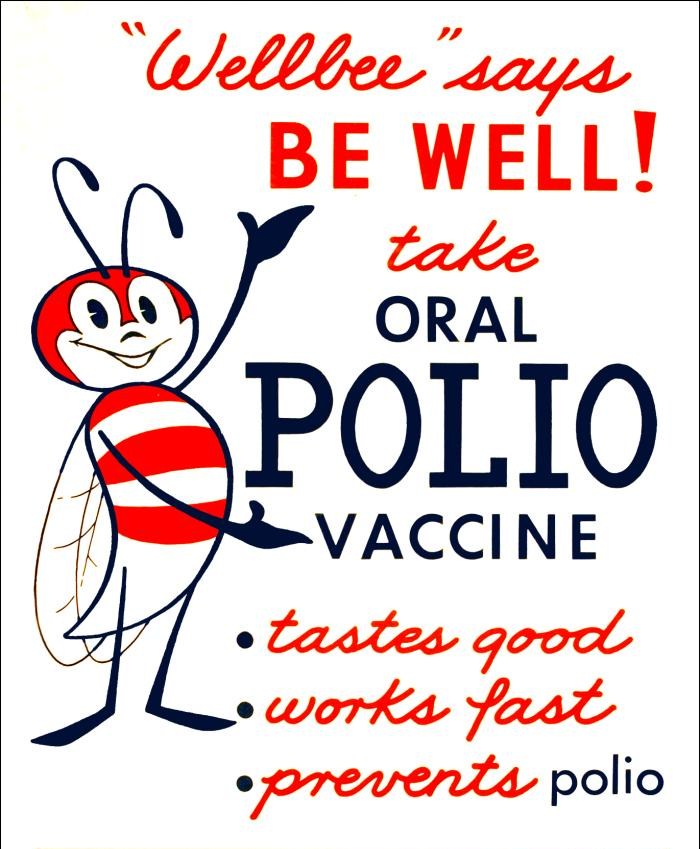
CDC Poster, 1963: Be Well! Take Oral Polio Vaccine

Just another nerd.

Timely artwork by Dr. Pepper Spray.


This is an actual paragraph from a New York Times report about vaccine hesitancy among employees of an eyewear company in New York,
One employee said she was concerned because she thought a vaccine had caused the characters in the film “I Am Legend” to turn into zombies. People opposed to vaccines have circulated that claim about the movie’s plot widely on social media. But the plague that turned people into zombies in the movie was caused by a genetically reprogrammed virus, not by a vaccine.
We can debate how significant foreign governments’ influence campaigns, homegrown anti-vaccination sentiment, and conspiracy theories are. But little of that ultimately matters when you have people so devoid of critical thinking that they use events from a fictional movie to decide whether to get vaccinated against a deadly disease.
Pathetic.
A persistent question related to COVID-19 is to what extent previous COVID-19 infections protect from future infections. It is not uncommon on social media to see people say that since they previously contracted COVID-19, they are immune and see no reason to get vaccinated.
The CDC notes that there are still a lot of unknowns about how long such protection lasts,
Yes, you should be vaccinated regardless of whether you already had COVID-19. That’s because experts do not yet know how long you are protected from getting sick again after recovering from COVID-19. Even if you have already recovered from COVID-19, it is possible—although rare—that you could be infected with the virus that causes COVID-19 again.
A recently published study that followed more than 16,000 adult health care workers suggests the “natural immunity” may be fleeting at best.
Results
Nine hundred and thirteen (6.12%) participants, including 45 (4.93%) IgG positive participants, experienced COVID-19 infections after study initiation, representing a 51% increased risk of COVID-19 infection among IgG positive participants (IRR = 1.51). Regressions adjusted for documented disparities showed no difference in COVID-19 infection by IgG status (OR=1.19; P = .3117) but significantly greater odds in COVID-19 recurrence among participants with a prior documented COVID-19 infection (OR=1.93; P < .0001).Conclusions
SARS-CoV-2 IgG antibodies and prior COVID-19 infection do not appear to offer meaningful protection against COVID-19 recurrence in healthcare workers. Recurrence would impact decisions regarding ongoing healthcare resource utilization. This study can inform considerations for vaccine administration to vulnerable groups.